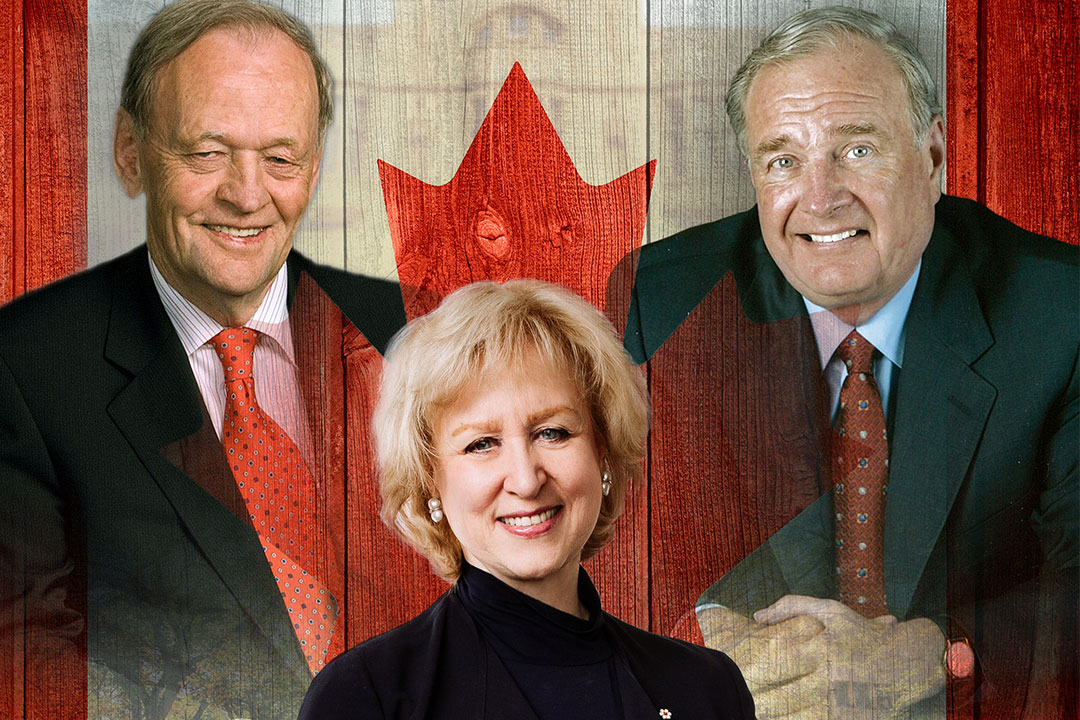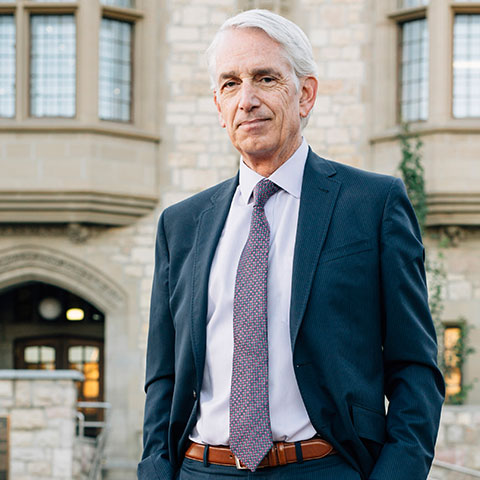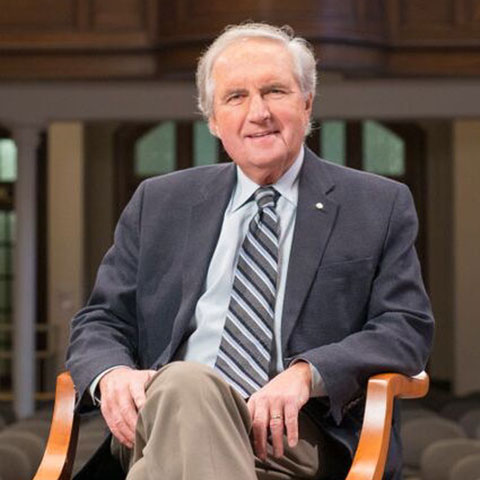
Talking Canada’s past, future with former PMs
In the midst of Canada’s 150th anniversary of confederation, U of S President Peter Stoicheff is excited that the university will soon host conversations with three former prime ministers.
By HenryTye Glazebrook
“We are in part interrogating the past 150 years in order to make enormous changes in the future— particularly with regard to Canada’s relationships with Indigenous people—and we are also celebrating achievements,” Stoicheff said. “In the 31 years that I’ve been here, we haven’t had a series of former prime ministers come to campus to engage in dialogue with the whole university community. I think that is really special and possibly unique in Canada. It’s a huge opportunity.”
As part of the U of S Canada 150 Project, the U of S will host three former Canadian prime ministers this fall, bringing in Jean Chretien (Sept. 27), Kim Campbell (Oct. 4) and Paul Martin (Nov. 9) to speak about how the country has shifted since their time in office and where the nation is headed, particularly with respect to Indigenous issues, women in politics, and national unity.
For Roy Romanow, current U of S chancellor and former Saskatchewan premier, having these three former federal leaders come to campus presents a unique opportunity to better understand how Canadian history informs the current political climate.

“Each and every prime minister has been important, but I think these three will provide perspectives on the evolution and history of Canada leading to the modern context,” Romanow said.
Romanow cites Campbell’s role as the first female prime minister in Canadian history, Martin’s commitment to issues affecting Indigenous communities, and Chretien’s experience during the Quebec Referendum of 1995, as some of the many vital topics that will likely be broached during the three speakers’ talks.
“They all played very important roles in some pretty big issues facing the country,” he said. “Each forum provides a piece of recent history about the major issues facing Canada and some of the personalities who were involved in some of those issues.”
Romanow will interview each of the leaders at the events. Conversations with Paul Martin will take place both at the College of Law’s Stack Memorial Canada 150 Forum and also at the 10th anniversary gala for the Johnson-Shoyama Graduate School of Public Policy.
The talks are planned as a way to bring a national spotlight to some of the many ways in which the U of S has contributed to the success of Canada as a whole, Romanow said. He cited Al Johnson, Sylvia Fedoruk and Emmett Hall as just a few examples of U of S graduates who were important nation builders.
“The U of S has distinguished itself in a number of ways in building Canada, in the biggest meaning of the word ‘building,’” Romanow said. “We have educated people to do things in the private and public sectors for the growth and improvement of the country. What better way to celebrate Canada 150, even if it’s only a little slice of some of the personalities and issues which have taken us here today.”
Stoicheff credited Romanow, who has had a working relationship with each of the three former federal leaders, with playing a pivotal role in bringing them to campus.
“All of this is made possible by the fact that we are fortunate to have Roy Romanow as our chancellor,” he said. “When you look across all of the 95 university institutions in this country, we have in Roy probably the most influential chancellor anywhere, in terms of past experience at a provincial and national level.”
The talks are only one part of a year that has been dedicated to commemorating Canada 150, with other upcoming events including a forum on the future of health care (Sept. 18), three Indigenous-related book launches, and a citizenship ceremony (Sept. 15) in which 50 new Canadians will take the Oath of Citizenship—marking the first time in U of S history that such an occasion has occurred on campus.
“It’s not just that we want to have a ceremony on campus, it’s that this ceremony brings people from different parts of the world together under the umbrella of citizenship,” Stoicheff said. “That’s very meaningful, and it speaks to our principle of diversity and our commitment to inclusion.”
For further details about U of S Canada 150 events, visit canada150.usask.ca.

